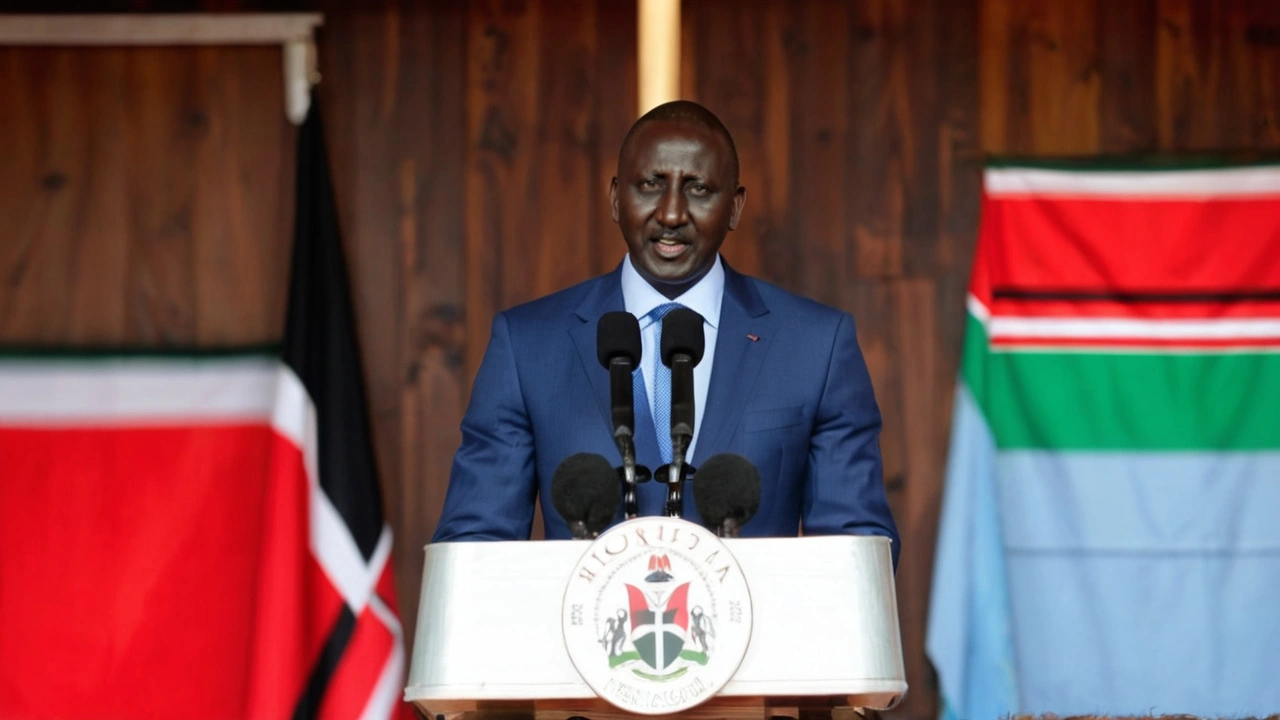President Ruto to Address Kenya Amidst Political Upheaval and Protests
In a significant political move, Kenyan President William Ruto is set to address the nation on Friday at 1300 GMT. This announcement from his spokesperson comes in the wake of last week's dramatic decision to sack his entire cabinet. After this unexpected and bold action, President Ruto has vowed to establish a new, more streamlined government. However, he has mostly reappointed former ministers to the newly formed cabinet, raising questions and stirring concerns among the public.
The upcoming address will likely focus on several key issues that have been at the forefront of national conversation. Among these is the president's rationale behind the decision to dismiss his ministers in the first place and the intentions behind their swift reappointments. Many Kenyans are eager to understand if this move signifies a genuine effort towards government efficiency and reform, or if it is merely a rebranding exercise with the same faces leading the charge.
Political Context and Public Sentiment
President Ruto's announcement comes against the backdrop of widespread anti-government protests that have permeated the nation. The demonstrations, spurred by various grievances, including economic hardships and alleged government corruption, have seen thousands taking to the streets in recent weeks. Protestors are demanding transparency, accountability, and substantial actions to alleviate their plights.
These protests reflect a broader sense of frustration and discontent, among the populace, with the current administration. The president's recent cabinet overhaul is perceived by some as a response to this growing discontent, aiming to placate protestors by demonstrating a willingness to make substantial changes within the government.
The Reappointment Conundrum
While initial reactions to the cabinet sacking were mixed, the subsequent reappointment of former ministers has added a layer of complexity to the situation. Critics argue that replacing the cabinet members only to bring them back shortly after seems contradictory and diminishes any perceived commitment to genuine reform. This has left many wondering whether the president is merely reshuffling the deck rather than embarking on the promised path of systemic change.
Supporters of President Ruto, however, maintain that the reappointments were necessary to ensure continuity and stability within the government. They argue that the experience and expertise of the reappointed ministers are crucial for navigating the country through its current challenges.
Expected Focus of the Address
As anticipation builds for President Ruto's address, several key themes are expected to be highlighted. Foremost among these is the president's vision for a leaner, more efficient government, and how the restructured cabinet aligns with this vision. He is also expected to address the concerns of protestors and outline steps the government intends to take to address their grievances.
Economic recovery plans will likely feature prominently in the address, given the current economic struggles faced by many Kenyans. With rising unemployment rates and increasing cost of living, the president will be under pressure to present tangible plans for economic revitalization and job creation.
Moreover, issues of governance and accountability are anticipated to be central points of discussion. The president may take this opportunity to reiterate his administration's commitment to fighting corruption and enhancing transparency within the government. This will be crucial in regaining public trust and demonstrating that the government is serious about addressing the root causes of the protests.
Public Reaction and Future Implications
The public's reaction to the president's address will be pivotal in shaping the country's political landscape in the coming months. Should the address resonate well with the populace and offer concrete solutions to their concerns, it may serve to quell the unrest and build a stronger foundation of trust between the government and the citizens.
However, if the address is perceived as lacking in substance or failing to adequately address the people's demands, it could further fuel discontent and exacerbate the protests. The president's ability to communicate effectively and respond to the public's needs will be under intense scrutiny during this critical juncture.
In summary, President William Ruto's upcoming address to the nation is set against a backdrop of political upheaval and public unrest. With a recent cabinet overhaul and ongoing protests, the stakes are high for the president to convey a clear, actionable plan for the future. The address will be a crucial test of his leadership and ability to navigate the nation through these turbulent times.

